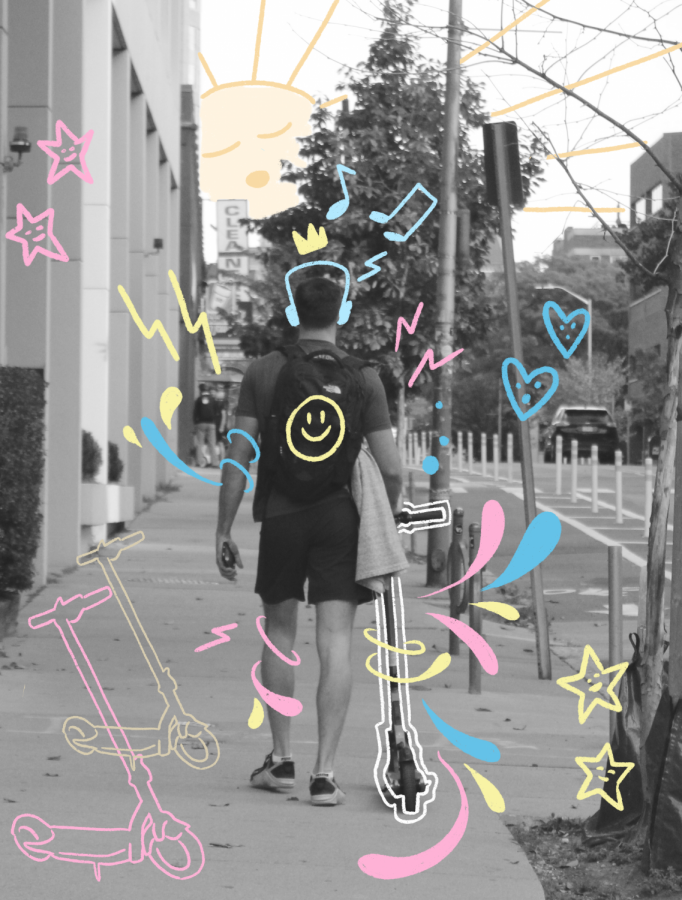Cambridge Scootering Is on the Rise
These mysterious motorists whir over sidewalk cracks and weave through cars.
October 30, 2021
Wheels grind the concrete, and silver metal glints in the sun. Preceded by a low hum, these mysterious motorists whir over sidewalk cracks and weave through stopped cars. Meet the newest traffic fiends and emission-evaders of Cambridge transportation—scooterists.
From the nostalgic “Razor’’ model to the matte black electric design, scooters are starting to pop up not only around Cambridge, but on a national scale. While you’re more likely to spot a mechanical scooter in densely populated locations, rentable motorized scooters are projected to dominate sprawled metropolitan areas that elude the reach of public transportation (like Los Angeles).
For many, they hit the sweet spot between convenience and casualness. CRLS junior Theodoro Tapia can attest to this. “Scooters are the midpoint between skateboards and bikes—they’re small and compact and can still get you where you need to go. They’re skateboards with a handle,” Tapia wrote to the Register Forum in an email. “It’s great!”
In fact, those advocating for scooterist expansion make a sound case. It’s an outlet for physical activity and offers a brush with the outdoors (as opposed to the confined pod of a car or bus), all while maintaining social distancing protocol. With its fast-paced riding style, scootering sharpens split-second decision skills, and is one of the most sociable methods of travel (as well as a great conversation starter). And, on the topic of safety, the World Research Institute has found it to be no more dangerous than its mechanical cousins.
But the world of scootering is far more complex than school commutes and social safety. Similar to the case of skateboards, bikes, and other comparable transportation methods, it claims a significant community of dedicated riders. One such scooterist, Keefer Glenshaw ’22, felt particularly compelled to advocate for the lifestyle. “Scootering isn’t just a frivolous mode of transportation. Scooter is a way of life. It is passion, it is pain, and it is everything in between,” he mused to the Register Forum. But aside from the zealous circle of scooterriders, there are controversies surrounding the activity.
The primary concern is the clear gender divide when it comes to general participation; most scooter riders are men. “Males are more willing to give up safety considerations on account of speed or quickness,” stated Kevin Krizek, a professor of transportation at the University of Colorado Boulder championing scooter research, in a recently published report. Like skateboarding, surfing, and other “little vehicles,” scootering is mostly white male-dominated, and has come under fire for lack of diversity. Whether it be a slight genetic predisposition, per Krizek, or an extension of the long-standing boys’ club that has dictated the demographics of similar activities, scootering is faced with the challenge of flipping its image in today’s times.
The grievances against the preexisting culture range in their prominence, but there’s likely no stopping the upward trajectory of scootering, particularly within Cambridge. Whether you’re an exasperated driver, ardent cyclist, or skater apologist, no entity thus far can combat the Cantabrigian scooterist.
This piece also appears in our October 2021 print edition.











